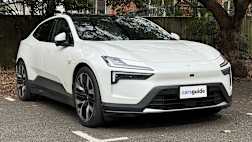SsangYong finally has a new owner, with Korea’s number-three automotive brand having officially been acquired by an electric vehicle (EV) specialist.
As expected, the company in question is Korean startup Edison Motor, which currently sells zero-emissions trucks and buses. It led a consortium to reach the ‘bargain’ 305 billion won ($A355.7m) deal.
Previous owner Mahindra & Mahindra bought SsangYong in 2010, when the latter had filed for receivership amid financial troubles. Fast forward to early 2021 and history repeated itself as a reported 60 billion won ($A70m) of debt was on the books.
After a decade of failing to turn SsangYong around, Mahindra & Mahindra decided to divest, eventually kicking off a long court-led search for new ownership that ultimately ended with Edison Motor, which has grand plans.
From the outset, Edison Motor has contributed 50 billion won ($A58.3m) in operating capital to help SsangYong stay afloat, while the remainder of the acquisition money will be spent repaying some of its debt to financial institutions.
That said, SsangYong will remain under court receivership until Edison Motor’s business plan is approved, including by a 66 per cent majority of the creditors. It must be submitted by March 1.
Edison Motor’s business plan will include a seismic shift in SsangYong’s focus, from SUVs and utes with internal-combustion engines to EVs in the next decade, although hat transition already started with the Korando e-Motion mid-size SUV.
As reported, SsangYong announced plans last July to shutter its only vehicle assembly plant, with its sale to help fund the construction of an all-new EV-specific factory, which will also be located in South Korea's Pyongtaek area.
For reference, SsangYong’s global sales (including Australia) decreased by 21 per cent, to just 84,496 units, in 2021, with an operating loss of 238 billion won ($A277.5m) reported between January and September, from 1.8 trillion won ($A2.1b) of revenue.





.jpg)

.jpg)


_0.jpg)
 (1).jpg)

.jpg)
.jpg)
_0_0.jpg)

.jpg)
.jpg)
_0.jpg)





.jpg)


.jpg)
